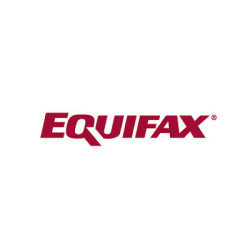 Equifax faces a new class action lawsuit over the massive data breach affecting 143 million consumers.
Equifax faces a new class action lawsuit over the massive data breach affecting 143 million consumers.
In the most recent class action lawsuit, plaintiff James Andrew Crossett alleges that the company violated the federal Fair Credit Reporting Act (FCRA) due to the volume of sensitive private personal information (PPI) lost to hackers in the breach.
The class action also ties together the recent disclosure of an earlier March data breach at Equifax and consumer complaints that the “free” identity theft protection offered by the company came with a condition that prohibited consumers from entering into a class action over the breaches.
“Equifax is in the business of collecting, assessing, storing, and maintaining the information of approximately 800 million worldwide consumers. Equifax collects and stores this information to sell it to third parties in the form of consumer credit reports, insurance reports, and other consumer demographic and analytics information,” alleges the Equifax class action lawsuit.
The FCRA requires companies in the business of collecting and reporting on such information, like Equifax, to protect consumers’ privacy given the amount of personal information it stores, notes the class action.
“Given the nature, extent, and sheer volume of sensitive PPI entrusted to it, Equifax was, and is, required to maintain that information in a secure manner and out of the hands of unauthorized individuals and organizations,” argues the Equifax data breach class action.
Crossett alleges that Equifax was negligent not only because it stored data in a way vulnerable to hackers, but also because it waited six weeks from the discovery of the breach to notify the public. Further, states the plaintiff, Equifax also failed to report on the March data breach it discovered earlier this year.
“On September 7, 2017, major news outlets began reporting on the July 2017 Breach,” notes the class action lawsuit. “These news stories represent the first time that Plaintiffs and all potential Class Members learned that their information secured by Equifax had been compromised. They now live in constant fear that their information is in the hands of criminals.”
Equifax customers were denied critical time to protect themselves from fraudulent use of their personally identifiable information, Crossett says.
“By depriving the Plaintiffs and Class Members information about the March 2017 and July 2017 data breaches…in a timely manner, Equifax subjected each consumer to a concrete informational injury, as these consumers were deprived of an opportunity to meaningfully consider and address issues related to the potential fraud, as well as to avail themselves of the remedies available under the FCRA to prevent further dissemination of their private information.”
Further, alleges the class action lawsuit, Equifax’s efforts to mitigate the effects of the breach were tainted by an attempt to stop affected consumers from entering into a class action lawsuit.
“Under the guise of an effort to mitigate damages and to provide some assistance to the victims of its data breach, including Plaintiff and Class Members, by allowing them ‘free’ access to Defendant’s TrustedID Premier service, Defendant, through the terms and conditions of that ‘free’ access, attempted to induce the victims, including Plaintiff and Class Members, to waive their rights to bring or participate in a class action lawsuit and require them to submit to arbitration,” states the class action lawsuit.
The plaintiff seeks to represent a nationwide Class of individuals whose private, personal information was released in the July Equifax data breach. The plaintiff is bringing claims under the FCRA and also alleges that Equifax was negligent.
Consumers affected by the data breach should note that Equifax has said it will waive the credit freeze fee it usually charges, so consumers can help protect themselves.
Crossett is represented by D. Todd Mathews, Evan D. Buxner, and Megan T. Arvola of Gori Julian & Associates PC.
The Equifax FCRA Data Breach Class Action Lawsuit is Crossett v. Equifax Inc., Case No. 4:17-cv-02434, in the U.S. District Court for the Eastern District of Missouri.
UPDATE: July 2019, a website has been established to inform Class Members of their rights under a $700 million Equifax data breach class action settlement.
UPDATE 2: July 2019, the Equifax data breach class action settlement is now open. Click here to file a claim.
UPDATE 3: On Nov. 19, 2019, the class action watchdog Center for Class Action Fairness filed an objection to the Equifax data breach class action settlement, claiming that the attorney fee request should be reduced and that the settling parties suppressed the claims process.
UPDATE 4: On Dec. 20, 2019, a federal judge gave a $425 million Equifax class action settlement final approval despite objections from consumer advocacy groups.
ATTORNEY ADVERTISING
Top Class Actions is a Proud Member of the American Bar Association
LEGAL INFORMATION IS NOT LEGAL ADVICE
Top Class Actions Legal Statement
©2008 – 2025 Top Class Actions® LLC
Various Trademarks held by their respective owners
This website is not intended for viewing or usage by European Union citizens.















72 thoughts onNew Equifax Class Action Filed After Massive Data Breach
I applied but never recieved payment
I filed a claim with y’all and never got my check for it
Please add me
include me and my husband
Please add me
Add me, please.